commentary Commentary
Commentary: Why the Singapore-Indonesia reciprocal green lane is necessary
Reopening business and official travel between both countries is a first step to resuming more bilateral travel and business activity in a COVID-19 world, say RSIS’ Jefferson Ng and Dedi Dinarto.
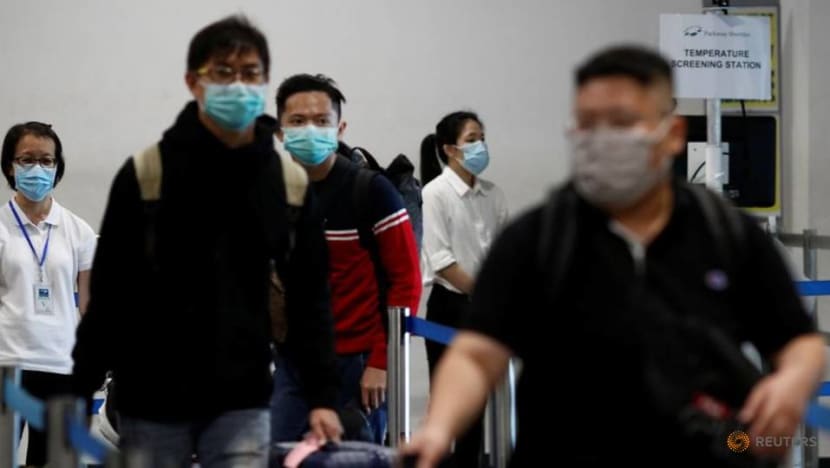
FILE PHOTO - Passengers arriving from Batam, Indonesia, pass a temperature screening station at the Singapore Cruise Center, following the coronavirus outbreak in Singapore March 5, 2020. REUTERS/Edgar Su
SINGAPORE: When was the last time you went to Indonesia? Or as an Indonesian, taken a trip to Singapore?
It must have been last year or at least no later than when borders were shut and travel restrictions slapped after COVID-19 engulfed the world.
The recent conclusion of a reciprocal green lane (RGL) between Singapore and Indonesia is part of a broader national effort to revive Singapore’s ailing air hub and to restore bilateral travel links.
The arrangement will allow applications for essential business travel, diplomatic travel, and urgent official travel at two points.
Air travel will resume between Changi Airport and Jakarta’s Soekarno-Hatta airport, as well as sea travel between Tanah Merah Ferry Terminal and Batam Centre Ferry Terminal after Oct 26.
However, the immediate economic impact of this arrangement is expected to be limited.
Travellers must still undergo a complicated application process, which includes applying for an e-visa on the Indonesian side or a SafeTravel pass on the Singapore side, finding a sponsoring organisation, and adhering to digital contact tracing measures and mandatory swab tests.
READ: Commentary: Hong Kong and Singapore air travel bubble could be a game-changer
READ: Fast lane, green lane, air travel bubble: What you need to know about Singapore's COVID-19 travel measures
With COVID-19 case incidence still very high in Indonesia, Singapore’s confidence in ramping up capacity for accurate swab tests to detect asymptomatic cases, coupled with our strong economic interests in Batam and Jakarta, likely figured heavily in the decision to restore travel links with Indonesia.
STRONG ECONOMIC TIES DESPITE THE PANDEMIC
Reopening business travel between the two countries speaks to the economic imperatives of doing so.
As neighbouring countries, Singapore and Indonesia are major economic partners. Major bilateral economic projects include the Kendal Industrial Park, a joint venture between Sembcorp Development and Indonesia’s industrial estate developer PT Jababeka.
READ: Commentary: Language barriers block businesses off from Indonesia
Many Singaporean manufacturing companies and digital startups operate in Batam, while companies such as Temasek and Singtel have stakes in major Indonesian companies like Gojek and Telkomsel.
Despite the pandemic, the latest official figures indicate that trade and foreign investment between the two countries remain robust.
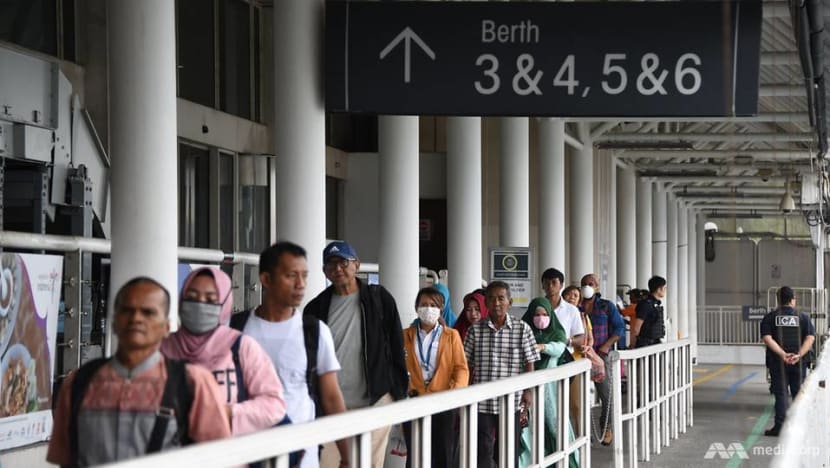
Singapore companies invested in 6,866 projects with an investment value of US$4.6 billion (S$6.25 billion) for the first half of 2020, according to the Indonesian Investment Coordinating Board (BKPM).
Compared to the first half of 2019, this is an increase of 36 per cent, putting Singapore as the top source of foreign domestic investment to Indonesia.
READ: Commentary: Looks like China has its own '+1' strategy and Southeast Asia is it
Indonesian exports to Singapore also grew 29 per cent between May to June, while Indonesian imports from Singapore grew 22.6 per cent, according to the Indonesian Statistics Board.
While the RGL will not affect the movement of goods between the two countries, it can support the resumption of diplomatic and business exchanges that underpin these economic ties.
For example, many of the professionals involved in business entities or projects with Singapore interests in Indonesia reside here and commute regularly before the travel restrictions kicked in.
Allowing them to travel will help resume or speed up some of these activities that could have been stalled.
On the other hand, the tourism industry has been hard hit in both countries. Prior to the pandemic, 3.1 million Indonesians visited Singapore in 2019, while 1.9 million Singaporeans visited Indonesia in the same year.
READ: Commentary: Indonesia has amended 79 laws to boost investment and jobs. But that may yet not be enough
The Riau Islands, which receive a large proportion of Singapore travellers, have been hard hit. While 99,000 Singaporeans visited Batam in January, arrivals have fallen close to zero since April, after the closure of ferry links.
The same story is true nationally. Air traffic bound for Indonesia in June 2020 was only 12 per cent of June 2019, while in August 2020, Changi Airport handled only 84,000 passengers, a mere 1.42 per cent of August 2019 figures.
THE RGL WILL DEEPEN TIES
While the RGL will not immediately lead to an opening of regular business or general travel, it will build confidence and the processes needed to gradually pave the way for limited tourist travel.
For instance, Singapore and Indonesia can consider special tourist travel arrangements between Singapore and one of the resorts in Lagoi, Bintan, where the flow and movement of people can be monitored and controlled.
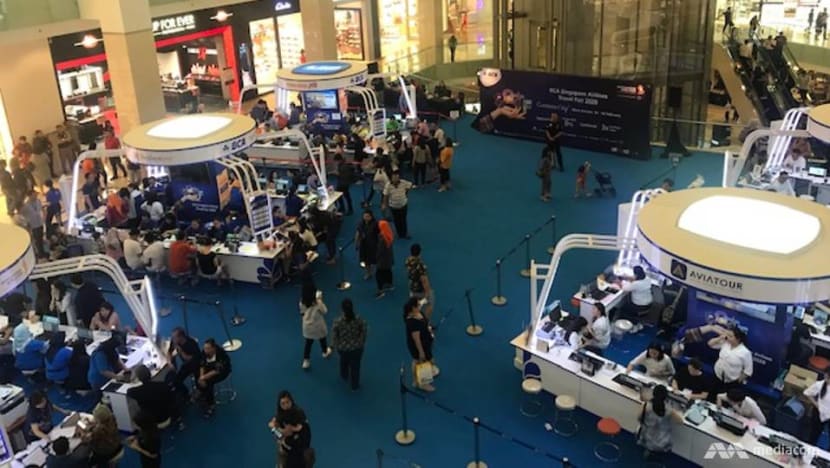
This will help intensify bilateral ties which have continued to strengthen even during the COVID-19 pandemic.
In April, the Temasek Foundation provided COVID-19 detecting PCR machines and kits, personal protective equipment (PPE), and ventilators for Batam and Bali.
READ: Commentary: Can Indonesia manage both COVID-19 and the looming threat of haze?
In May 2020, the Temasek Foundation again offered 5,000 litres of hand sanitiser concentrate to three regions in Indonesia, including Jambi, Riau, and Riau Islands. Singapore also imported 5.000 bed sets from Indonesia to expand hospital bed capacity.
The opening up of business and diplomatic travel through the RGL will allow official visits to resume, which will add a more personal touch than bilateral meetings online.
Such visits can also facilitate the exchange of information and best practices in tackling the pandemic while opening up the possibility for deeper economic cooperation – all in enhancing bilateral ties.
MOVING TOWARDS A NEW NORMAL FOR MICE
The RGL in itself is a modest step for Singapore to restart the economy and boost investors’ confidence. In recent months, both countries have been looking to restart and support economic activity.
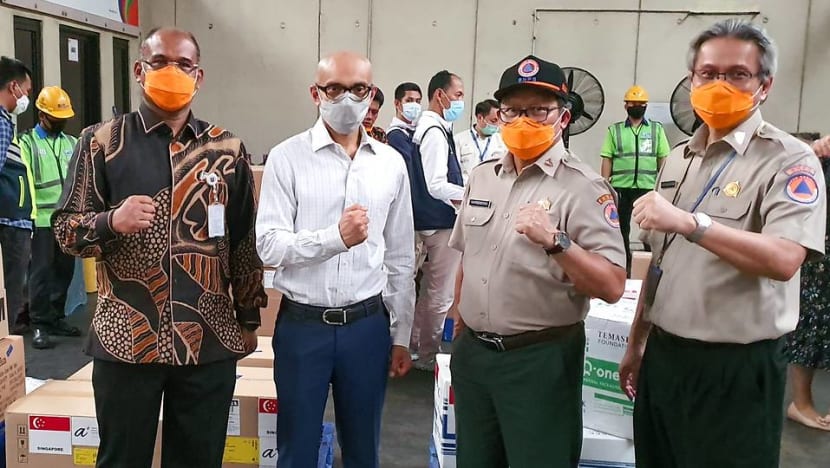
But while both countries will likely benefit economically from the resumption of general travel, establishing an air travel bubble between Singapore and Indonesia will not realistically happen for the foreseeable future.
Given the nature of the restrictions, most companies are unlikely to change their travel policy, meaning that there will not be a large uptick in essential business travel applications.
However, the RGL could benefit a few groups including diplomatic and official travel, corporate executives with regional responsibilities, representatives from the Indonesian Chamber of Commerce, and Singaporean companies in Batam.
READ: Commentary: How much tariffs will be levied on a COVID-19 vaccine?
READ: Commentary: Why risk of contracting COVID-19 may be higher in some places
Singapore has also opened up green lane arrangements with various countries, as well as general travel with China, Hong Kong, Japan, Brunei and New Zealand, meaning that Indonesians can also benefit from meeting regional business counterparts in Singapore.
This could support Singapore’s efforts to restart its MICE (Meetings, Incentives, Conferences, and Exhibitions) sector.
With Singapore’s low rate of community transmissions, Singapore is positioning itself as a safe destination for holding meetings and conferences. If rapid testing could be implemented for travellers in lieu of a quarantine, travel could increase.
REVIVING MORE LINKS
If the reopening of travel links at the two points work as intended, both countries could open additional entry and exit points for reciprocal green lane arrangements between Singapore and other major Indonesian cities such as Medan in North Sumatra and Bandung in West Java.
In 2019, investment flows from Singapore to Indonesia were the highest for North Sumatra and West Java, after Jakarta and the Riau Islands. .
This, however, should be based on whether the medical and airport infrastructure can support the green lane arrangement.
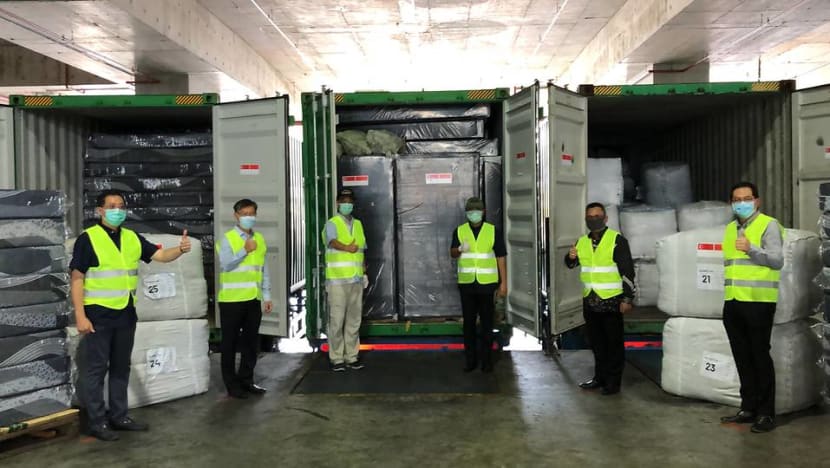
In a nutshell, the RGL initiative between Singapore and Indonesia is a tentative first step to support the aviation sector and permit limited MICE activities between the two countries.
READ: Commentary: Dear Indonesia, shaming the infected is a lousy COVID-19 plan
However, we do not expect regular business or tourist travel to resume between both sides.
A gradual and phased opening will depend on both countries’ confidence to be able to manage the flows of people between the two countries and the ability of COVID-19 tests to detect and isolate asymptomatic cases.
Jefferson Ng is a Senior Analyst and Dedi Dinarto is a Research Analyst with the Indonesia Programme, Institute of Defence and Strategic Studies, S. Rajaratnam School of International Studies, Nanyang Technological University. Jefferson Ng’s research focuses on Indonesia’s parliamentary politics and foreign policy, while Dedi Dinarto focuses on Indonesia’s foreign and security policy, Indonesian politics, and local dynamics in the Riau archipelago.

















